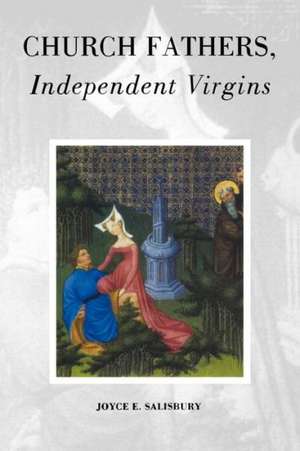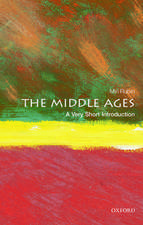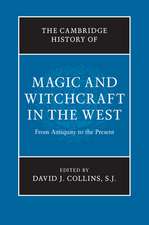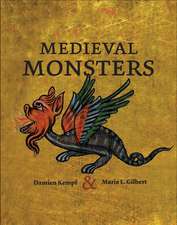Church Fathers, Independent Virgins
Autor Joyce E. Salisburyen Limba Engleză Paperback – 30 noi 1992
Joyce Salisbury explains the relationship between Church doctrine and the position of women by placing these official views alongside an ascetic tradition which resisted the constraints imposed by sexual intercourse. Through an examination of texts of female and popular authorship, and the extraordinary lives of seven women saints—including the transvestites Castissima and Pelagia—she presents a markedly different picture of sexual and social roles. For many of these women, celibacy became a form of emancipation.
Church Fathers, Independent Virgins bears witness to the entrenched power of the Church to oppress, the continuing power of women to overcome, and the enduring effects of medieval sexual attitudes.
Preț: 114.53 lei
Nou
Puncte Express: 172
Preț estimativ în valută:
21.91€ • 22.94$ • 18.13£
21.91€ • 22.94$ • 18.13£
Carte disponibilă
Livrare economică 17-31 martie
Preluare comenzi: 021 569.72.76
Specificații
ISBN-13: 9780860915966
ISBN-10: 0860915964
Pagini: 180
Dimensiuni: 154 x 234 x 12 mm
Greutate: 0.3 kg
Ediția:Revised
Editura: VERSO
ISBN-10: 0860915964
Pagini: 180
Dimensiuni: 154 x 234 x 12 mm
Greutate: 0.3 kg
Ediția:Revised
Editura: VERSO
Notă biografică
Joyce E. Salisbury is professor of History at the University of Wisconsin-Green Bay, and the author of Iberian Popular, 600 B.C. to 700 A.D. and Medieval Sexuality: A Research Guide.
Recenzii
“... wonderful accounts of female bloody-mindedness and a very accessible explanation of the Church’s growing limitation of women’s roles ... it is unusual to find a book that is both useful and fun.”—Sara Maitland
“The modern resistors of the feminine role can now, thanks to this lively book, take heart from the exploits of their foremothers who cocked a snook at bossy St Jerome and guilt-ridden St Augustine and invented their own routes to freedom and fulfillment.”—New Statesman and Society
“The modern resistors of the feminine role can now, thanks to this lively book, take heart from the exploits of their foremothers who cocked a snook at bossy St Jerome and guilt-ridden St Augustine and invented their own routes to freedom and fulfillment.”—New Statesman and Society






